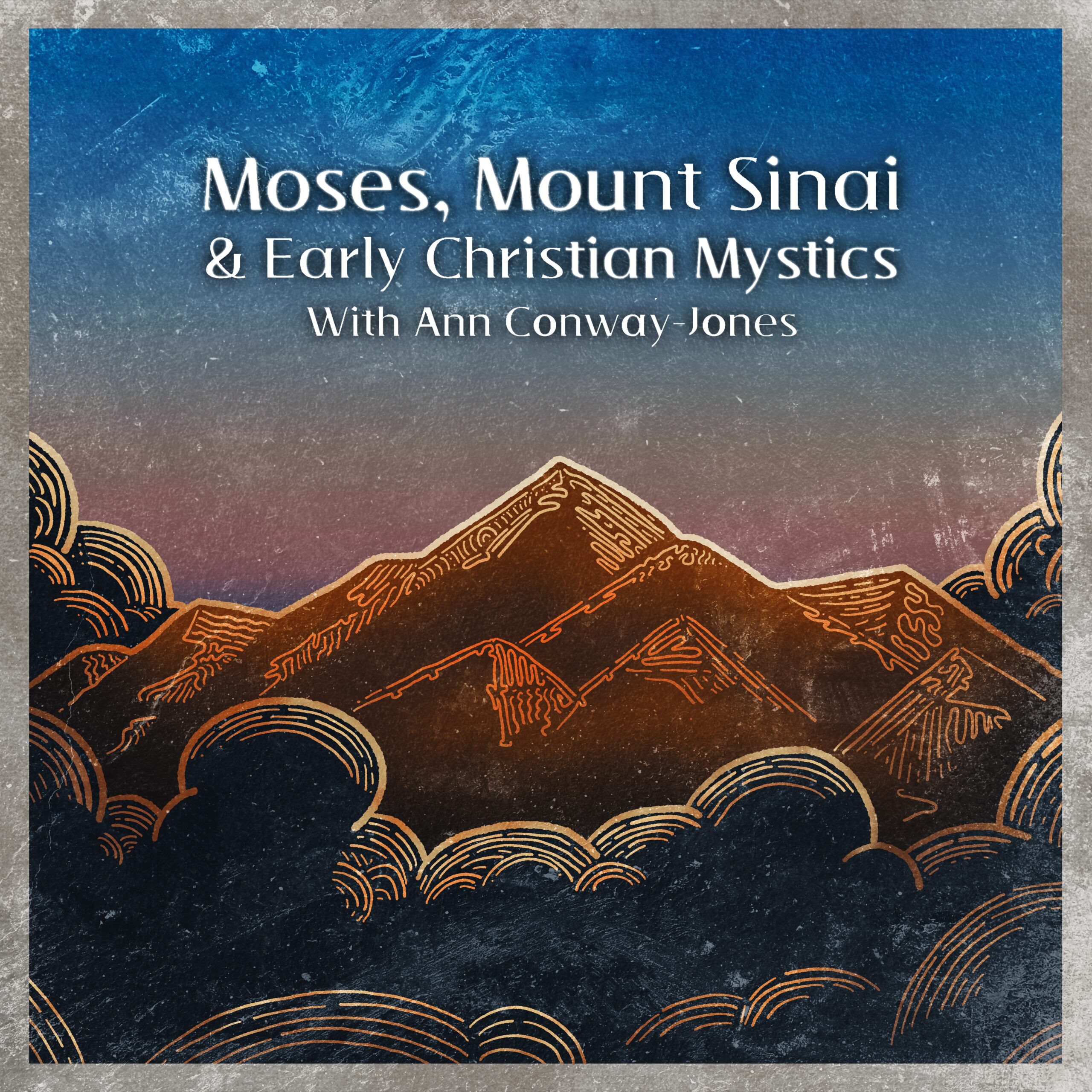Description
Moses’ encounter with God on the summit of Mount Sinai, as told in the biblical book of Exodus, contains a number of peculiarities and paradoxes. Early Christian mystics seized on these as clues to the spiritual understanding of Moses’ experiences, and as guides to the practice of contemplation. In this course we will examine five moments in Moses’ ascent of Mount Sinai: his entry into the darkness; the elders’ vision of the sapphire pavement; the pattern of the tabernacle revealed; God’s placing of Moses into the cleft of the rock; and Moses’ shining face. We will explore how these intriguing passages inspired four early Christian writers – Gregory of Nyssa, Evagrius of Pontus, Pseudo-Macarius and Dionysius the Areopagite – as they reflected on such topics as the unknowability of God and the state of a mind at prayer. In doing so, we will discover the influence of scripture on the development of the Christian mystical tradition.
Session 1: The Darkness of Unknowing (Exodus 20.18-21)
“[Moses] breaks free … away from what sees and is seen and he plunges into the truly mysterious darkness of unknowing. Here, renouncing all that the mind may conceive, wrapped entirely in the intangible and the invisible, he belongs completely to him who is beyond everything.” (Dionysius)
Session 2: Divine Blue (Exodus 24.9-11)
“When the mind has put off the old self and shall put on the one born of grace, then it will see its own state in the time of prayer resembling sapphire or the colour of heaven; this state scripture calls the place of God that was seen by the elders on Mount Sinai.” (Evagrius of Pontus)
Session 3: The Heavenly Tabernacle (Exodus 25 – 28)
“Moses was educated beforehand by a type in the mystery of the tabernacle which encloses everything. This would be Christ, ‘the power of God and the wisdom of God’, which in its own nature is not made by hands, yet allows itself to be physically fashioned when this tabernacle needs to be pitched among us, so that, in a certain way, the same is both unfashioned and fashioned: uncreated in pre-existence, but becoming created in accordance with this material composition.” (Gregory of Nyssa)
Session 4: The Cleft in the Rock (Exodus 33:11-23)
“This truly is the vision of God: never to be satisfied in the desire to see him. But one must always, by looking at what he can see, rekindle his desire to see more. Thus, no limit would interrupt growth in the ascent to God, since no limit to the Good can be found nor is the increasing of desire for the Good brought to an end because it is satisfied.” (Gregory of Nyssa)
Session 5: Transformation (Exodus 34:29-35)
“For blessed Moses provided us with a certain type through the glory of the Spirit which covered his countenance upon which no one could look with steadfast gaze. This type anticipates how in the resurrection of the just the bodies of the saints will be glorified with a glory which even now the souls of the saintly and faithful people are deemed worthy to possess within, in the indwelling of the inner person.” (Pseudo-Macarius)
Bio

Ann Conway-Jones’ research interest is early Jewish–Christian relations, focussing particularly on biblical exegesis and the origins of mysticism. Her PhD research, involving a range of Jewish and Christian mystical writings about the heavenly temple, has been published by OUP as Gregory of Nyssa’s Tabernacle Imagery in Its Jewish and Christian Contexts.
She teaches biblical studies, early Jewish–Christian relations, and the development of mystical theology for The Queen’s Foundation; Woodbrooke Quaker Studies Centre; Birmingham Church of England diocese; and Oxford University Department of Continuing Studies. For six years she taught biblical Hebrew in the Department of Theology and Religion.
She is actively involved in Jewish–Christian dialogue, and is the Chair of Birmingham Council of Christians and Jews.


